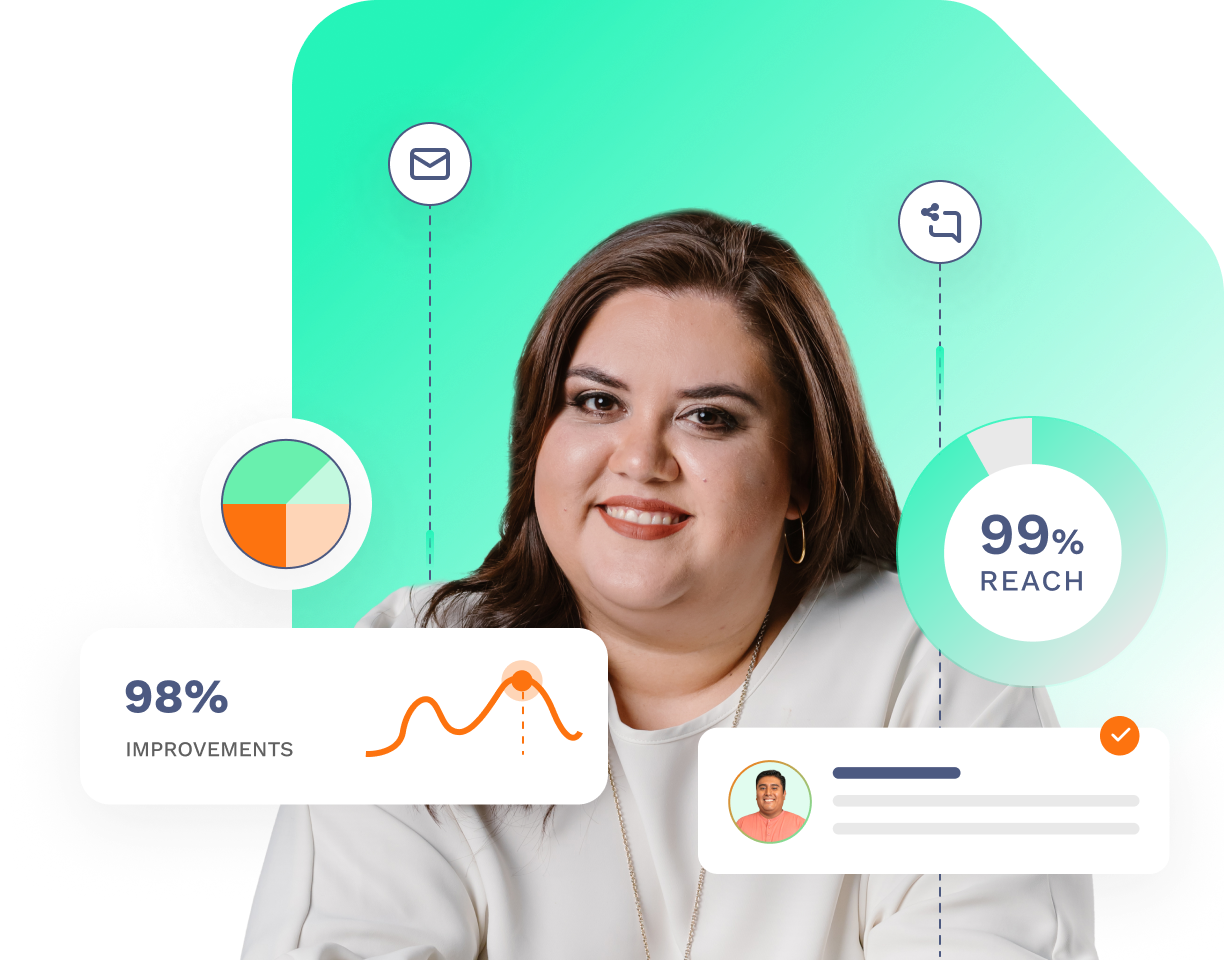Inbound Marketing
Data Driven Content Marketing: Turning Insights into Impact

Lourdes Calderón
Lourdes Calderón | Sep 05, 2025 | 4 MIN READ
Sep 05, 2025 4 MIN READ

For years, content marketing has been about creativity—storytelling, brand voice, and thought leadership. But as markets become more saturated and buyers more skeptical, creativity alone doesn’t cut it. Marketers who win today are those who pair creativity with intelligence. That’s where data driven content marketing comes in.
At its core, data driven content marketing is about replacing guesswork with insights. Instead of relying on hunches about what your audience might want to read, you use actual data—behavioral signals, search trends, performance metrics—to shape strategy. Done right, it not only increases reach and engagement but also ties content efforts directly to pipeline and revenue.
Why Content Marketing Without Data Falls Short
Marketers don’t struggle with creating content—they struggle with creating content that performs. Blog posts get published, whitepapers launched, videos promoted… but too often, results plateau.
Here’s why:
-
Audiences are overwhelmed. Buyers are bombarded with messaging across every channel, making it harder for generic content to stand out.
-
Assumptions dominate planning. Without data, content calendars reflect what marketers think their audience cares about, not what they actually need.
-
Impact is hard to measure. When KPIs stop at pageviews or downloads, content’s true value gets lost in the noise.
Data driven content marketing fixes this by grounding strategy in facts, not assumptions.
What Data Driven Content Marketing Really Means
It’s tempting to think “data driven” simply means checking Google Analytics after a campaign. In reality, it’s much deeper. True data driven content marketing weaves insights into every stage of the content lifecycle:
-
Planning: Using search data, intent signals, and audience insights to decide what to create.
-
Creation: Personalizing messaging and format to fit the audience’s pain points and preferences.
-
Distribution: Choosing channels and timing based on when and where your audience engages most.
-
Optimization: Iterating content performance over time with real feedback loops.
The result is a content engine that’s not only creative but also predictable and revenue-focused.
How to Build a Data Driven Content Marketing Strategy
1. Start with the Right Data Sources
Great content strategies draw from a mix of data types:
-
First-party data: CRM records, email engagement, and website analytics.
-
Third-party data: Intent platforms, industry reports, and competitor analysis.
-
Search data: Keywords, questions, and topics trending among your ICP.
Together, these sources reveal what your audience is asking, where they spend time, and how they make decisions.
2. Connect Content to the Buyer Journey
A blog that generates clicks but doesn’t move accounts through the funnel is wasted effort. Data helps you map content to specific journey stages—awareness, consideration, decision—and ensure each asset drives progression, not just visibility.
3. Personalize Without Overcomplicating
Marketers often over-engineer personalization, making it unsustainable. Data allows you to personalize at scale: tailoring messaging by industry, role, or problem statement instead of trying to create one-off campaigns for every account.
4. Measure Business Impact, Not Vanity Metrics
Pageviews, likes, and shares matter, but they don’t prove ROI. A data driven content marketing program tracks deeper metrics like pipeline influenced, sales cycle acceleration, and revenue attribution. These are the numbers CMOs and CFOs care about.
Challenges in Data Driven Content Marketing
Even experienced marketers hit roadblocks:
-
Data silos: Insights are scattered across marketing, sales, and product teams.
-
Analysis paralysis: Too much data without clear priorities stalls action.
-
Technology complexity: Platforms promise intelligence but require integration and expertise to use effectively.
-
Creative vs. data tension: Teams sometimes see data as limiting creativity, when in reality it enhances it.
The key is to balance rigor with flexibility—use data to guide decisions, but leave room for creative risk-taking.
Why Data Driven Content Marketing Is the Future
The most effective marketers know content is no longer just about publishing—it’s about performance. Data driven content marketing doesn’t just make campaigns more efficient; it transforms content into a predictable growth lever.
By grounding creativity in evidence, marketers can cut through the noise, create experiences that matter, and prove ROI with confidence.
In a world where budgets are scrutinized and competition is fierce, data isn’t just helpful—it’s essential.
TABLE OF CONTENTS
Stay Updated with Our
Latest Posts
Subscribe now to receive the freshest content, insights, and updates directly in your inbox.



2024 © The Orange Box Agency – All rights reserved



.png?width=90&height=90&name=facebook%20(1).png)
.png?width=94&height=96&name=Vector%20(1).png)